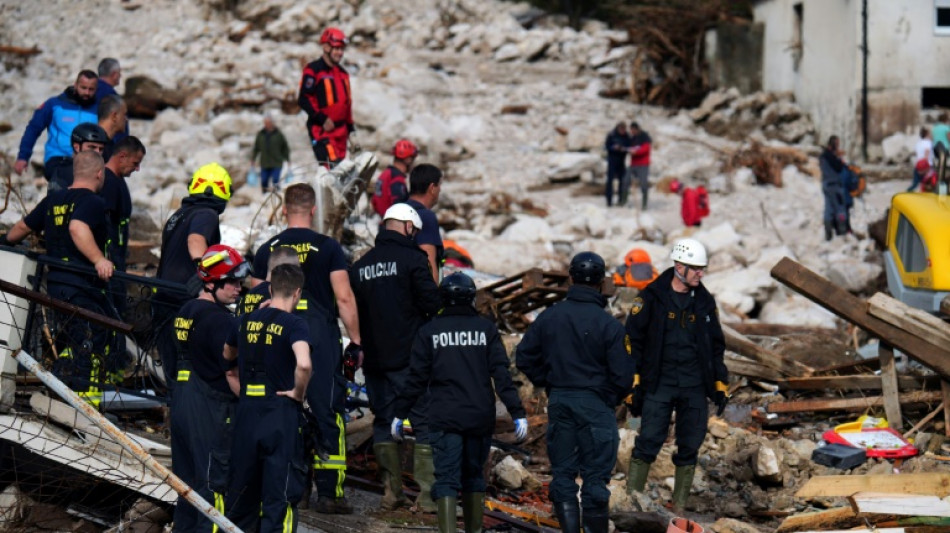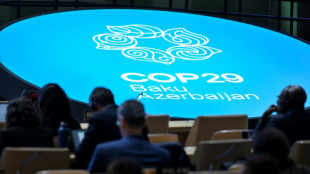

Search continues for missing in deadly Bosnia floods
The search for dozens of people reported missing in floods that have claimed at least 17 lives in Bosnia continued on Saturday, after torrential rains inundated towns and triggered landslides.
The waters are receding after the floods that struck Bosnia on Friday, but many roads to affected towns remain blocked, and large areas are still covered in debris.
Jablanica, located about 70 kilometres (43 miles) southwest of the capital, Sarajevo, appeared to have suffered the worst of the downpours, which cut it off from the rest of the country.
The city was buried under mud, rocks and landslides, including granite debris from a nearby quarry, with homes destroyed and vehicles wrecked.
Rescue teams with search dogs are combing the area for the missing and those possibly trapped, said an AFP journalist at the scene.
In the Jablanica region, 10 people remain missing, according to local official Darko Juka.
Earlier on Saturday, authorities from Jablanica region confirmed 13 deaths, revising down a toll of 16 initially reported on Friday.
Later, Federal Prime Minister Nermin Niksic told a press conference that one more body had been found in Jablanica, while "three bodies were recovered in the Fojnica region".
The government of the Muslim-Croat Federation, one of two entities making up Bosnia, along with Republika Srpska, declared a state of natural disaster and established a crisis headquarters on Friday.
The floods also washed away bridges and railway lines.
"There were no new rains overnight, and excavators and heavy machinery are working to clear the area" Juka said.
- Region on alert -
Bosnia’s election commission postponed local elections in municipalities affected by the floods. Voting will proceed as scheduled in other areas.
The Bosnian football association also postponed all matches in response to the disaster.
The Croatian mountain rescue service arrived in Jablanica early Saturday to assist with rescue efforts, while Serbian Prime Minister Milos Vucevic announced his country would provide aid to the citizens of Bosnia.
Floods have also hit Montenegro, washing away roads and cutting off the village of Komarnica, with the Moraca River in Podgorica rising significantly.
Water levels are rising in some Croatian rivers, and the government in Zagreb has warned of potential flooding in parts of Karlovac, a city near the Kupa River.
Scientists warn that climate change is making extreme weather events more frequent.
Torrential rains and strong winds led to widespread flooding in central and eastern Europe last month, killing at least 24 people and devastating towns and villages.
H.Eggers--HHA



